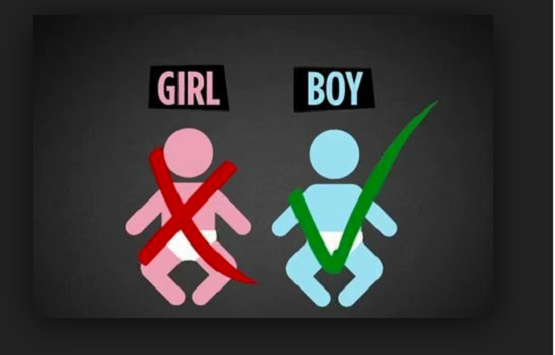Arkansas Gov. Asa Hutchinson today signed into law a bill to prohibit sex-selection abortions on unborn babies.
Sponsored by state Rep. Charlie Collins, Arkansas House Bill 1434 would make it illegal for abortion practitioners to knowingly abort an unborn child solely because of the child’s sex.
“The bottom line is it’s just the right thing to do to have this in the law,” Collins said, previously.
The bill would require abortion practitioners to make a reasonable effort to obtain medical records and information related to the pregnancy to help determine if sex-selection is the reason for the abortion. Abortion practitioners who violate the legislation could face misdemeanor charges, fines and a license suspension or revocation, according to the report.
A top pro-life group hailed the governor.
“Arkansas’s governor and legislative leaders are to be commended for addressing the shocking problem of sex selection abortions which disproportionately target baby girls,” said Americans United for Life Vice President of Legal Affairs Denise Burke, following Arkansas Governor Asa Hutchinson’s approval of Arkansas House Bill 1434, the Sex Discrimination By Abortion Prohibition Act.
The new law is largely based on AUL model legislation and includes legislative findings about the impact of late-term abortions on maternal health. Sex selection abortions are typically performed later in pregnancy when abortions are indisputably much more dangerous for women.
Burke said Arkansas is now the 10th state to prohibit sex-selective abortions. Currently, seven of these protective laws are either fully or partially in effect. The Arkansas law is slated to go into effect on January 1, 2018.
“The radical reality of abortion in America is this: the U.S. is one of four nations in the world permitting abortion through all 9 months of pregnancy, sometimes with taxpayer subsidies and for any reason whatsoever, including sex selection. AUL applauds the efforts of Governor Hutchinson, Arkansas’s legislature, and pro-life stalwarts like the Arkansas Family Council who are working to reinvigorate a culture of life in their state,” said Burke.
Planned Parenthood and the ACLU in Arkansas lobbied against the legislation, and indicated that they likely would challenge it in court.
In February, ACLU Arkansas Executive Director Rita Sklar blasted the bill as an intrusion into what she said should be a woman’s private decision. She also claimed the bill is unconstitutional.
“Any legislation that bans abortion before the point of viability is unconstitutional, plain and simple,” Sklar said, the AP reported. “There is very good potential for litigation because of this burden on women obtaining abortions that they want for whatever reason.”
The Arkansas affiliate of Planned Parenthood also complained about the bill to the AP. The abortion group has opposed similar sex-selection abortion bans in the past.
Click here to sign up for pro-life news alerts from LifeNews.com
“We can all agree that gender discrimination is a problem. This bill however does nothing to address that issue or actually solve that problem,” Planned Parenthood Great Plains spokesperson Ashley Wright said. “These laws would interfere with open, honest communication between doctors and patients.”
Sex-selection abortions have become a major problem across the world. Girls in the womb especially are targets of this deadly form of discrimination. As a result, some countries have unnaturally high ratios of men to women.
In China, for example, the ratio of boys to girls at birth was 115.88 boys to 100 girls in 2014, according to research by the Charlotte Lozier Institute.
While research on sex-selection abortions in America is limited, one study did find evidence that they may be happening in the U.S.
“One major study that analyzed U.S. Census data from 2000 found that third births in families of foreign-born Chinese, Indians, and Koreans in the U.S. who already had two daughters displayed a ratio of 151 boys to 100 girls—an extreme male-biased ratio,” according to the research group.
A 2012 poll conducted by the Lozier Institute found that 77 percent of Americans support laws prohibiting abortions in cases where “the fact that the developing baby is a girl is the sole reason for seeking an abortion.”








